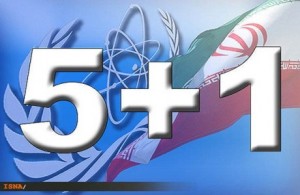 Brussels, Belgium – Iran took the first steps Monday to limit its nuclear programme under a deal with world powers, the International Atomic Energy Agency (IAEA) confirmed, paving the way for the European Union and the United States to suspend some sanctions.
Brussels, Belgium – Iran took the first steps Monday to limit its nuclear programme under a deal with world powers, the International Atomic Energy Agency (IAEA) confirmed, paving the way for the European Union and the United States to suspend some sanctions.
This is the first time that Iran has scaled back its nuclear programme, 10 years after its secret activities came to light and prompted Western fears that Tehran was working on a nuclear weapon.
In Tehran, Ali Akbar Salehi, the head of Iran’s Atomic Energy Organization, said the country had halted uranium enrichment to 20 per cent and had begun down-blending uranium enriched to higher levels, according to the Fars news agency.
A report by IAEA inspectors confirmed these measures, which Iran had agreed to in its deal with six western powers on November 24, under which several sanctions on Iran will in turn be lifted for six months.
During this period, the two sides hope to reach a permanent solution to concerns that Iran is seeking a nuclear weapon.
“This is an important day in our pursuit of ensuring that Iran has an exclusively peaceful nuclear programme,” said EU foreign policy chief Catherine Ashton, who has led the negotiations with Tehran on behalf of Britain, China, France, Germany, Russia and the US.
The IAEA report, issued by nuclear inspectors in Tehran, triggers a carefully choreographed sequence of events that should see sanctions suspended before the end of the day.
The U.S. was now studying the report’s findings, along with the EU and other negotiating partners, said a spokeswoman for the State Department.
IAEA inspectors also said that Iran is not building any new uranium enrichment plants and is no longer working to complete its Arak reactor, which would produce plutonium as a side-product once it operates.
The international community has been concerned that uranium enriched to 20 per cent or plutonium from Arak could be turned into material for nuclear warheads.
EU foreign ministers meeting in Brussels are expected to announce the suspension of sanctions in the afternoon.
“All the texts are ready … It is simply a question of hitting on the right button at the right time,” a top EU official said Friday, speaking on condition of anonymity.
In return for Iran’s compliance, the EU and the U.S. have agreed to lift all sanctions on trading with Iran in petrochemical products, gold and precious metals. Companies will again be able to provide transport and insurance for crude oil shipments.
Thresholds to transfer money to and from Iran without authorization will be increased 10-fold, while 4.2 billion dollars of Iranian funds held in third countries will be released over the coming months.
“We will be fulfilling our side of the deal,” British Foreign Secretary William Hague said as he arrived for the talks in Brussels.
“Of course other sanctions will be maintained; this is a limited and proportionate sanctions relief,” he added.
The six-month window is aimed at building trust and buying time for Iran and the six powers to seek a wider-ranging deal that would further limit Tehran’s nuclear programme, in return for lifting all sanctions for good, notably an economically crippling oil embargo.
These talks would hopefully resume in the “next few weeks,” Ms Ashton said. Her office had warned earlier that “much work” lay ahead.
“The initial agreement does not change the fact that Iran’s nuclear activities continue to be in violation of various UN Security Council resolutions,” the EU’s diplomatic service wrote in a briefing note last week.


